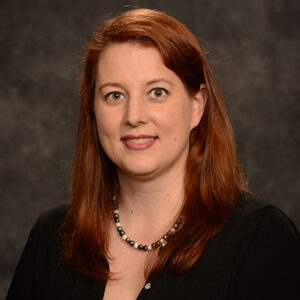Be an Engine Design and Development Leader
Fuel your passion for engines and advance your career! Get the key skills you need to become a chief engineer of new engine programs with the only online master’s degree program focused on internal combustion engines. The knowledge gained in the Master of Engineering in Engineering with an emphasis in Engine Systems (MEES) degree program is equivalent to 10 years of engine design experience. When you finish the degree, you’ll have the skills to drive engine innovations that benefit customers, suppliers, employees and the environment.Know Every Aspect of the Engine
Get more experience in the areas of engine design and performance when you design an engine during the required Capstone project. Some of our past students have received a patent for their design project work! You can immediately apply what you learn at work every day, especially when you study combustion, controls, emissions, and aftertreatment. You’ll also collaborate with other engineers who are active in different areas of the engine industry—from large engines, to small engines and on-road to off-road and non-road.Benefit from Engine Experts
Interact with faculty and students from UW–Madison’s renowned Engine Research Center (ERC)—leaders and experienced colleagues working in the internal combustion engine industry. You’ll have regular access to experts and insights from one of the the longest-running research centers devoted to internal combustion engine research in the U.S. and the world. Developed by ERC faculty, the Engine Systems master’s degree program integrates thermal sciences; design and mechanics; electronics and control; and applications and manufacturing into a two-and-a-half to three-and-a-half-year online graduate degree with a yearly summer residency on the UW–Madison campus.Learn more about this program!
In Defense of Internal Combustion
Presenter: Kelly Senecal
MEES Minute Blog
Cost-effective Renewable Fuels are Here!
The U.S. Department of Energy (USDOE) Bioenergy Technologies Office (BETO) has achieved a significant milestone in decreasing the price of “drop-in” biofuels. Fungible or “drop-in” fuels are made from biomass and other waste carbon sources …
MEES Industry Advisor Spotlight: Dr. Syed Wahiduzzaman, Gamma Technologies
The MEES program is guided by an Industry Advisory Board. The members cross-cut the industry representing the on-road, off-road, and non-road sectors. All of the members generously donate their time to making sure that the …
- See More Stories
30 credits
2.5 – 3.5 years
$1300 per credit
Resident and non-resident
July 1
Fall application deadline
Related Certificates
- Course and Degree Plan
- External Advisory Board
- Learning Online
- Faculty & Staff
- Admission Requirements
- Tuition and Financial Aid
Academics
Apply Your Learning Immediately on the Job In the Engine Systems graduate program, we understand that to be a successful engineering leader, you must be able to integrate and apply knowledge from different areas to engine development projects that meet market demands and are cost-effective. Nearly every subject in the mechanical engineering curriculum finds application in the engine. Our research-oriented faculty incorporate topics from electronics and mechanical engineering into real-world assignments and group projects. Curriculum Engine manufacturers, suppliers, and vehicle manufacturers using internal combustion engines will value the immediate applicability of the skills you will learn in this online Engine Systems program. The curriculum for the Engine Systems master’s program will prepare you to:- Manage the complete development process for a new engine
- Clearly articulate customer and application requirements
- Effectively integrate engine design with various manufacturing processes
- Select the combustion system, fuel, and engine system configuration that will best fit a particular application; among many other critical skills
- EPD 622 Engine Design I | View course overview video
- EPD 623 Engine Design II | View course overview video
- EPD 624 Engine Performance and Combustion
- EPD 642 Thermal Systems Engineering | View course overview video
- EPD 625 Engine Gas Dynamics | View course overview video
- EPD 627 Perspectives on Engine Modeling | View course overview video
- EPD 628 Analysis and Trends in Engines
- EPD 629 Powertrain Systems and Controls | View course overview video
- EPD 633 Engine Boosting | View course overview video
- EPD 720 Engine Noise and Vibration
- EPD 620 Electrified Powertain Systems
- EPD 621 Batteries for XElectrified Vehicles
- EPD 612 Technical Project Management
- EPD 630 Engine Design III | View course overview video
- EPD 631 Electrified Vehicle-Level Modeling
Faculty
- Program Director: Andrea Strzelec, PhD
- Graduate Academic Advisor: Karene Cary, MS
- Emily Bierman, PhD
- Elana Chapman, PhD
- Steve Ciatti, PhD
- Eric Fluga, MS
- Tom Harris, PhD
- Kevin Hoag, MS
- Chi Binh La, ME
- Chloé Lerin, MS
- John Kasab, PhD, PE
- John Lahti, PhD
- Patrick Murphy
- Brian Price, PhD
- Roy Primus, MS
- Peter (Kelly) Senecal, PhD
- Bapi Surampudi, PhD
- Sudhi Uppuluri, MS
Faculty Directors
- Prof. Dave Rothamer, ERC
- Prof. Sage Kokjohn, ERC
- Prof. Jaal Ghandhi, ERC
- Prof. Mario Trujillo, ERC
- Prof. Scott Sanders, ERC
Admission Requirements
Application Overview The admissions process has been designed to conduct a holistic review of your likelihood of success in the program. Decisions are based on your academic and professional background. To start the process, please read the admission requirements to determine your eligibility. If you have questions about your eligibility, please request an eligibility review by emailing Student Services. This email should include a copy of your current resume and informal transcripts. Applications are accepted for admission during the fall term. Applications are reviewed in the order received until the July 1 deadline for fall admissions. Admission is competitive and selective. Therefore, applicants are encouraged to submit application materials prior to the deadline. Admission requirements for the Master of Engineering in Engineering with an emphasis in Engine Systems degree program are listed below. Exceptions to standard admission requirements are considered by the admissions committee on an individual basis.- A bachelor of science (BS) degree in (mechanical) engineering from a program accredited by the Accreditation Board for Engineering and Technology (ABET) or the equivalent.* International applicants must have a degree comparable to an approved U.S. bachelor’s degree.
- A minimum undergraduate grade-point average (GPA) of 3.00 on the equivalent of the last 60 semester hours (approximately two years of work) or a master’s degree with a minimum cumulative GPA of 3.00. Applicants from an international institution must have a strong academic performance comparable to a 3.00 for an undergraduate or master’s degree. All GPAs are based on a 4.00 scale. We use your institution’s grading scale; do not convert your grades to a 4.00 scale.
- Applicants whose native language is not English must provide scores from the Test of English as a Foreign Language (TOEFL). The minimum acceptable score on the TOEFL is 580 on the written version, 243 on the computer version, or 92 on the Internet version.
- GRE is not required. Applicants who have taken the test are encouraged to submit their scores.
- Registration as a professional engineer by examination, if achieved, should be documented to support your application.
- Technology costs for internet course delivery
- Live web-conferencing
- Library use
News
UW-Madison’s Robert Agasie and Andrea Strzelec Win DOE Nuclear Research Award
University of Wisconsin Nuclear Reactor (UWNR) Director Robert Agasie and Dr. Andrea Strzelec recently received $222,294 from the Department of Energy Nuclear Energy University Program (DOE NEUP) for their project, “Development of Neutron Tomography at the UWNR.” This project will enhance nuclear energy-related research and development at the UWNR and associated Characterization Laboratory for Irradiated Materials (CLIM), which also houses UW Mechanical Engineering Professor Mark Anderson’s X-ray Imaging System.
UW-Madison’s Dr. Andrea Strzelec Wins $2.6M DOE Grant to Accelerate Advancements in Near-Zero-Emissions Vehicles
Dr. Andrea Strzelec has been selected to receive a $2.6 million award from the US Department of Energy (with a $3.3M total budget) for her project “Comprehensive Integrated Simulation Methodology for Enabling Near-Zero Emission HD Vehicles” to accelerate advancements in near-zero-emissions vehicles. Dr. Strzelec is the program director for the Master of Engineering in Engine Systems (MEES) in the Interdisciplinary Professional Programs Office of the College of Engineering and an honorary associate research scientist in the Department of Mechanical Engineering at the University of Wisconsin-Madison.
EPD’s Dr. Andrea Strzelec chosen as German-American Frontiers of Engineering Symposium participant
MADISON, Wis.—Dr. Andrea Strzelec, program director of the Master of Engineering in Engine Systems, Polymer Engineering and Power Engineering programs at UW-Madison Engineering Professional Development (an office of the College of Engineering) has been selected …
- More News


